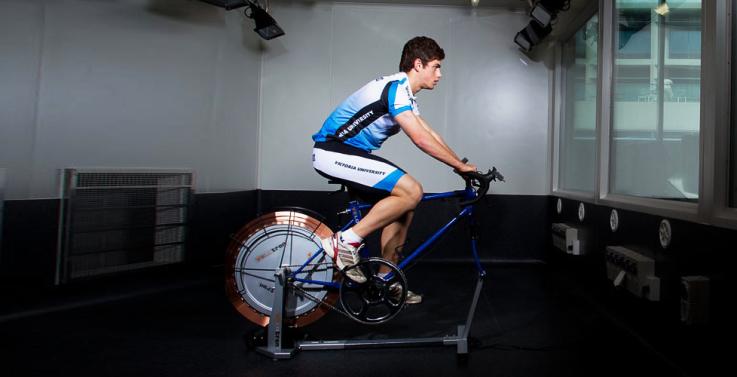
Melbourne researchers are mapping genes from thousands of athletes in a project aimed at developing a talent ID test within a couple of years.
Victoria University researchers Dr Nir Eynon and Professor David Bishop, with Sydney University’s Professor Kathryn North and Dr Peter Houweling, will collect the DNA of up to 2,000 athletes from around the world over the next two years to analyse their genetic variations.
“With this knowledge we hope to develop an accurate genetic test for athletes – one we could use to identify talent or direct athletes to the sport or playing position best suited to them,” Dr Eynon said. “This is not fairytale stuff – we have the equipment, knowledge and leading researchers together here and now to do this.”
Those tested will be grouped as elite national and international athletes and amateur athletes, and identified by their ethnicity for the past three generations. The study will also compare the profile of Australian athletes against those from African and European countries.
Dr Eynon said the US and China were already embracing this technology and that Australia could not afford to fall any further behind.
“With such a comparatively small population of 23 million in Australia we have to be very good at talent ID to remain competitive,” he said. “We are already pushing the boundaries with science around training, nutrition and athlete preparation, but for the other 50 per cent which determines performance – the genetics – we are doing very little.”
He said scientists already knew of more than 200 single nucleotide polymorphisms – or DNA sequence
variations – associated with exercise. Theses variations can affect protein function and how a person responds to training.
“What Australian sport needs more investment in is investigating exactly which of these genetic variations is the most important and how it influences performance,” he said.
“Having a genetic test like this will end up saving money by focusing resources on talented young athletes who are most likely to succeed, rather than just taking a large group of people and seeing by chance which ones develop into world-class athletes,” he said.
Dr Eynon is presenting at Victoria University as part of the Road to London 2012 forum series hosted by Victoria University’s Institute of Sport, Exercise and Active Living.
Media are welcome to this free event:
Victoria University, Footscray Park Campus.
Cnr Ballarat Road and Mills Close, building K, level 6.
Monday 26 March 8am to 9 am
Available for interview:
Dr Nir Eynon, Research Fellow
Institute of Sport, Exercise & Active Living (ISEAL), Victoria University
(03) 9919 5615; 0451 440 796; Nir.Eynon@vu.edu.au
Media contact:
Michael Quin, Research Writer
Public Affairs Unit, Victoria University
(03) 9919 9491; 0431 815 409; Michael.quin@vu.edu.au
